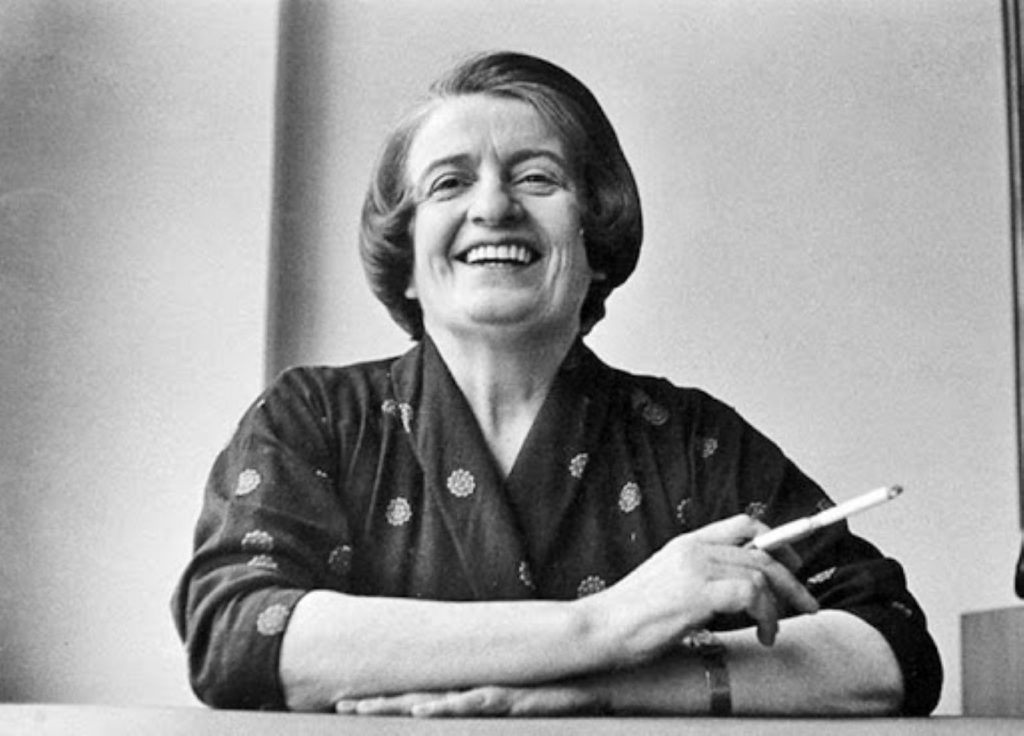Ayn Rand, one of the most influential pro-liberty minds of the 20th century, was born 117 years ago today. Considered to be a novelist and philosopher in equal measure, she promoted Objectivism, her philosophical system, through many works of both fiction and nonfiction.
Some prominent examples of her work include Anthem (1938/1946), The Fountainhead (1943), Atlas Shrugged (1957), and The Virtue of Selfishness (1964). Her writing had a profound impact on many of her readers and led to the emergence of the Objectivist movement, which promotes Rand’s capitalist, individualist and pro-liberty values.
Ayn Rand, originally Alisa Zinovyevna Rosenbaum, was born on February 2, 1905, in Saint Petersburg, Russia.
At age nine, she decided that she wanted to pursue a career in writing. During her youth, she was supportive of the February Revolution, which overthrew Tsar Nicholas II in 1917, but vehemently opposed the Bolsheviks.
During the October Revolution, her father’s business was confiscated and her family fled to Crimea, which at the time was still held by Anti-Bolshevik forces.
In 1921, they returned to Saint Petersburg, which was then called Petrograd. As Russian universities became open to women, Rand studied at Petrograd State University, graduating with a diploma in history in 1924.
Rand emigrated to the United States in 1926 after having obtained a visa to visit relatives in Chicago. Subsequently, she held various jobs connected to the film industry, in order to support her writing.
In 1929, she married Frank O’Connor, an actor she had met while working on the film, The King of Kings, and became an American citizen in 1931.
During the 1930s, Rand enjoyed some success as a screenwriter. She sold a screenplay, Red Pawn, to Universal Studios in 1932. However, it was never produced, likely due to its anti-Soviet theme, which would have been unpopular in Hollywood at the time, given that many filmmakers had communist sympathies.
However, in the mid-1930s, her theatrical play, Night of January 16th, proved popular. One of its aims was to promote individualism over social conformity.
Her career as a novelist developed following the publication of We the Living, a semi-autobiography fiercely critical of communism, in 1936, and Anthem, a science-fiction novella set in a dystopian future, first published in 1938.
Publication of The Fountainhead, in 1943, marked the beginning of Rand’s period of major success, with Atlas Shrugged (1957) regarded as her most famous masterpiece.

The ideas and values of Objectivism, Ayn Rand’s philosophical system, can be found throughout her many works. Reality, reason, self-interest and capitalism are promoted as the most important values in her ‘philosophy for living on earth’. Central to this philosophy is the idea of reason and rational self-interest as the cornerstone of morality.
These concepts are explored in great detail in Rand’s many works of nonfiction, including For the New Intellectual (1961), Capitalism: The Unknown Ideal (1966), and Introduction to Objectivist Epistemology (1979), of which installments first appeared in her journal, The Objectivist, published between 1966 and 1971. This journal also includes works by other prominent figures in the Objectivist movement.
Rand’s ideas have had a significant impact on a diverse range of academics, political figures, and entrepreneurs. Many advocates of individual liberty around the world can attribute some of their ideas to reading Ayn Rand.
Her sphere of influence even extended into the entertainment industry. For instance, the late Neil Peart, drummer and lyricist for Canadian rock band Rush, acknowledged Rand’s work, and Anthem specifically, as an influence when writing the lyrics for the title song of the album 2112 (1976). Similarly to Anthem, the song 2112 is set in a dystopian future where all aspects of individual freedom are outlawed.
Following Rand’s death, on March 6, 1982, her ideas and philosophy continued to be promoted through the Ayn Rand Institute, founded in 1985 by her designated heir, Leonard Peikoff.
Her writing is just as relevant now as it was at the height of her career, contributing immensely to modern arguments for social, economic, and civil liberties.
If you would like to receive a free copy of thirteen previously unpublished letters by Ayn Rand, be sure click on the button below.
This article was originally published on the LibertyCon Europe blog.
This piece solely expresses the opinion of the author and not necessarily the organization as a whole. Students For Liberty is committed to facilitating a broad dialogue for liberty, representing a variety of opinions.